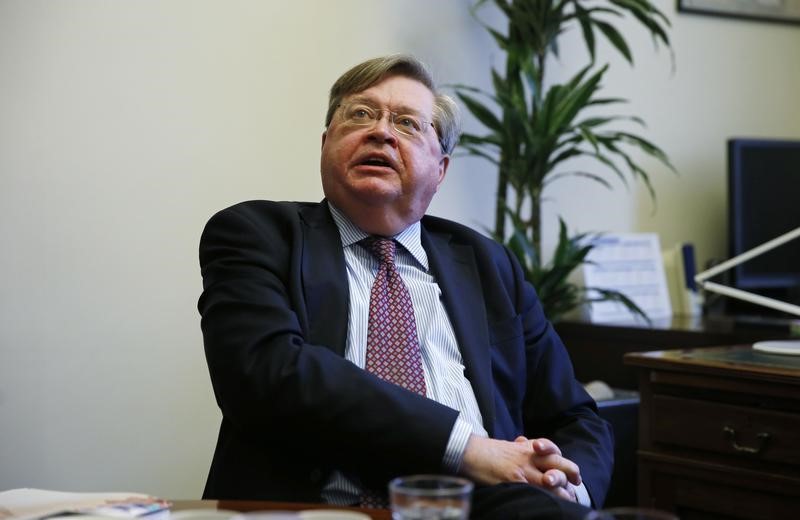LONDON, March 10 - The decline in oil prices will probably dampen British inflation for a long time, but the Bank of England should still look through this as it decides when to raise interest rates, a policymaker said on Tuesday.
Monetary Policy Committee (MPC) member Ian McCafferty, who voted for higher interest rates from August through December last year before dropping that call in January, said for now it was right to make sure low inflation does not feed through into lower wage growth.
British consumer price inflation fell to its lowest level on record in January at 0.3 percent. Earlier on Tuesday, BoE Governor Mark Carney reiterated that it will probably fall to around zero in the next few months.
Despite falling inflation, the strength of Britain's economic upturn has fuelled debate about the timing of the first BoE rate hike from a record low 0.5 percent -- their level for the past six years.
McCafferty said although unlikely, the possibility that inflation gets stuck at very low levels -- and then pushes down wage growth -- would have adverse consequences for the economy. "It is therefore not a risk that we can dismiss," McCafferty said in a speech at Durham University in north-east England. But McCafferty repeated his view that the amount of slack in Britain's economy was less than the consensus estimate among his MPC colleagues of 0.5 percent of gross domestic product.
Looking further ahead, that could mean wages rise at a pace that would generate too much inflation as the economy hits full steam.
"As labour market slack is absorbed, there is a risk that wages may accelerate to a pace inconsistent with stable inflation, which the MPC could not ignore."
Last month Kristin Forbes, another BoE rate-setter, said British inflation pressures could pick up quickly and other factors could also mean an interest rate hike is needed "in the
near future".

Economists polled by Reuters expect the BoE will not raise interest rates from their record low of 0.5 percent until October at the earliest. [BOE/INT]